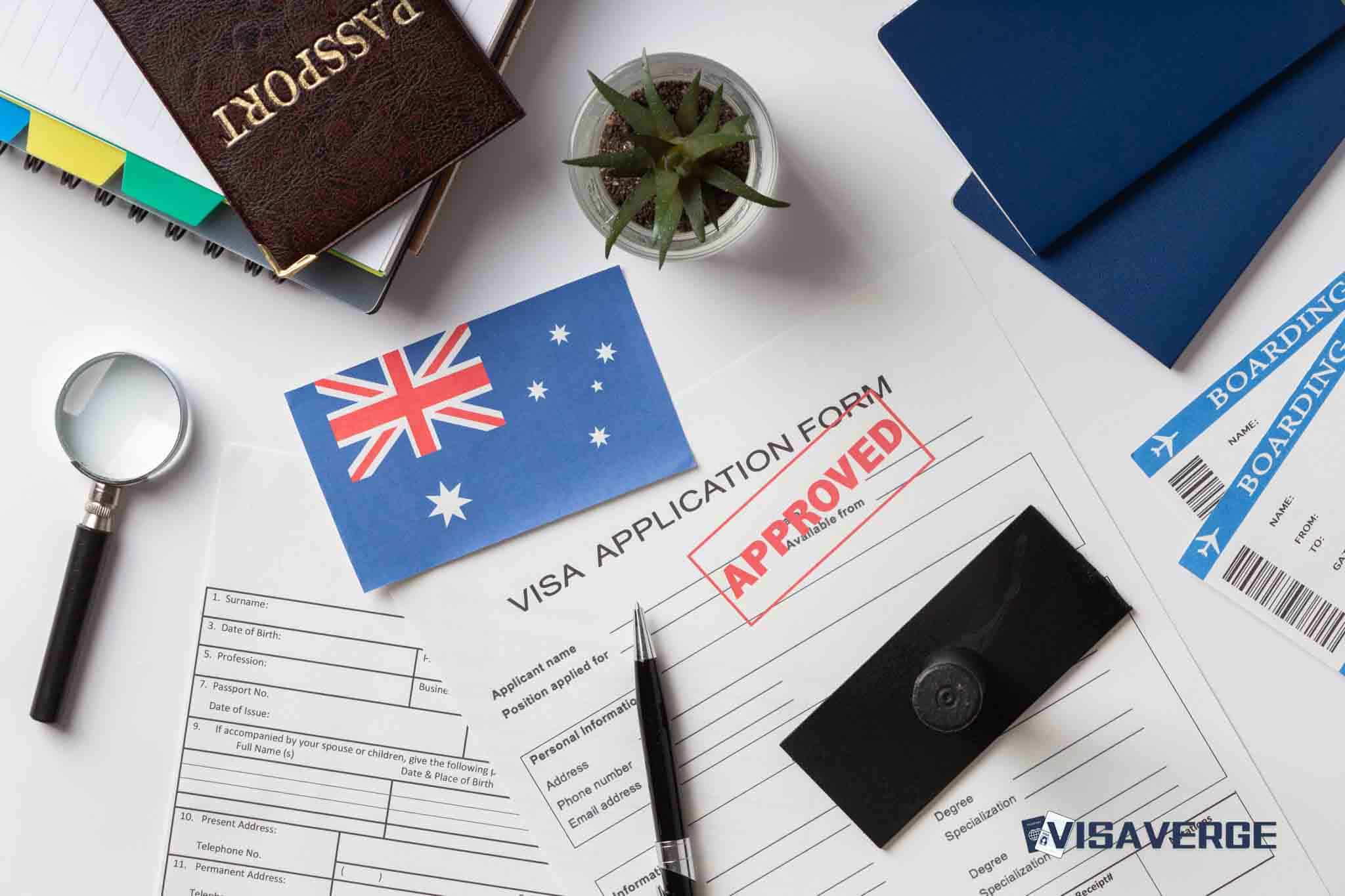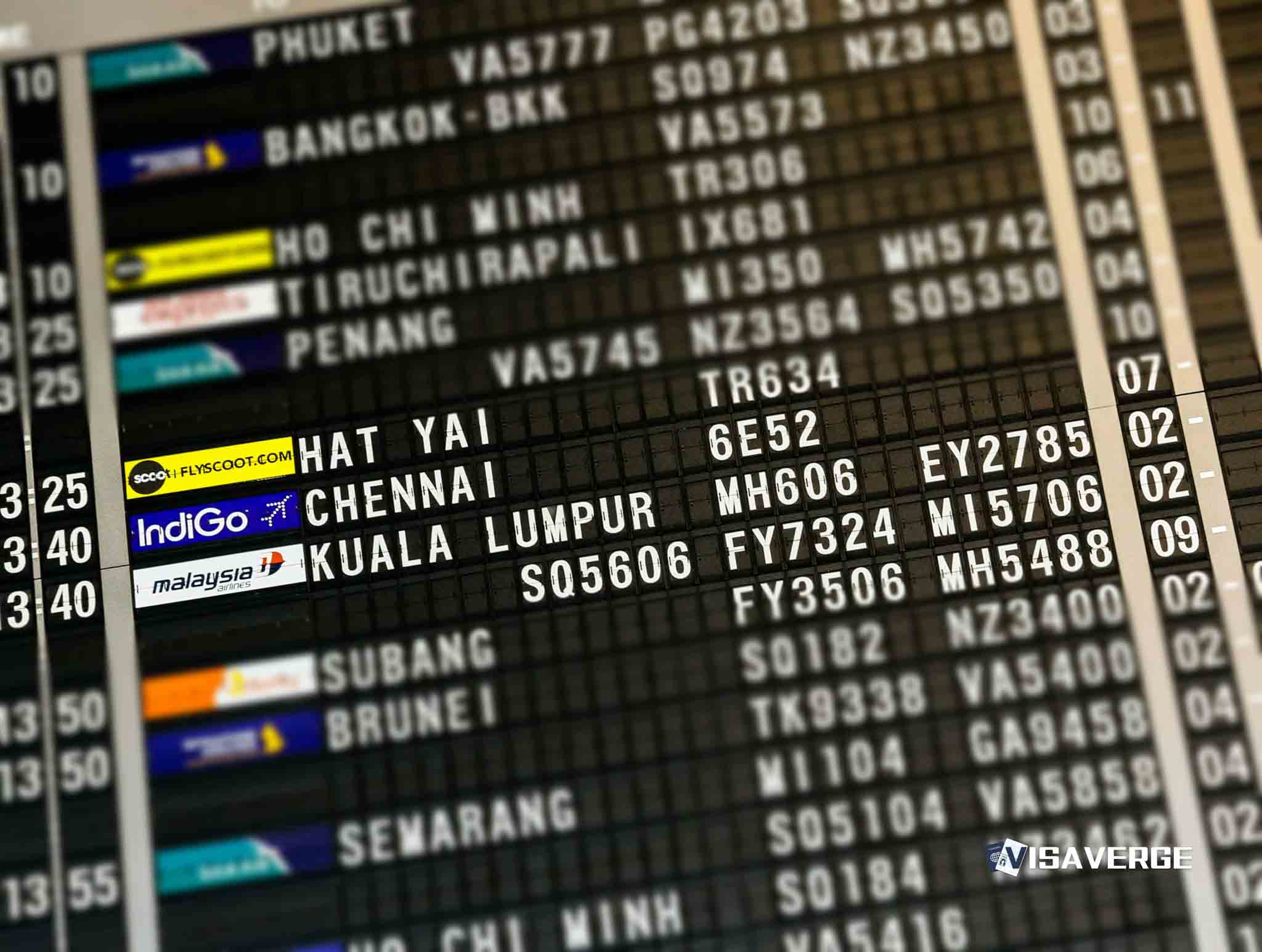Understanding Visa Cancellation in Australia
If you’ve received a notification that your visa to Australia has been cancelled, it’s natural to feel a mix of confusion and concern about what to do next. Australia has strict immigration laws, and navigating the path forward requires a clear understanding of available options. Whether you’re in Australia or abroad when you receive the notice, knowing how to appeal an Australian visa refusal is essential. In this post, we’ll walk through the steps to appeal against a visa cancellation and provide guidance to help you through this challenging time.
Steps to Appeal Visa Cancellation in Australia
When faced with visa cancellation, it is crucial to act quickly. Australian immigration laws set strict time limits for appealing visa cancellations. Here’s what you should know about the process.
Step 1: Review the Decision
First, thoroughly review the decision letter from the Department of Home Affairs. Understand the reasons behind the visa cancellation Australia authorities have given. This information is critical because it will shape your appeal strategy.
Step 2: Know Your Rights and Obligations

You have rights to appeal, but also specific obligations. Depending on your visa type, the reason for cancellation, and your circumstances, you may have the right to appeal the decision to the Administrative Appeals Tribunal (AAT) or, in some cases, directly in court.
Step 3: Appeal to the Administrative Appeals Tribunal (AAT)
If eligible, you can lodge an appeal with the AAT. During the appealing visa cancellation process, the AAT will reassess your case and the circumstances that led to the visa cancellation. Here’s a link to the AAT’s website for more information on appealing migration and refugee decisions.
Step 4: Legal Representation
Consider getting legal advice or representation. Immigration lawyers are well-versed in how to appeal Australian visa refusal and can provide invaluable assistance in preparing your case and advocating on your behalf.
Step 5: Prepare Your Case
Gather relevant documents, evidence, and arguments to support your appeal. This could include documents relating to your initial visa application, character references, or information about your ties to Australia.
Step 6: Attend the Hearing
You’ll have an opportunity to present your case at a hearing. The tribunal member will consider all the evidence and make a decision. It’s crucial to be well-prepared and to clearly articulate the reasons why your visa should not have been cancelled.
Closing the Appeal
After the hearing, the AAT will either uphold the visa cancellation or decide in your favor. If the decision is not in your favor, you may be able to make a further appeal on legal grounds to the Federal Court or High Court. However, this is generally based on points of law, rather than the merits of your case.
Key Considerations and Resources
Remember these key considerations when appealing a visa cancellation:
- Time is of the Essence: Act promptly because there are strict time limits for lodging appeals.
- Seek Professional Help: Legal complexity often requires professional advice; don’t hesitate to seek it.
- Stay Informed: Keep up to date with the latest immigration laws and policies by checking resources like the Australian Department of Home Affairs website.
Handling the complexities after a visa cancellation is demanding. Yet, with the right preparation and understanding of the process, you can increase your chances of a successful appeal. Be thorough, be timely, and use the resources available to you to face this challenge with confidence.
Expert Insights
Did You Know?
- Diverse Migration Patterns: Did you know that approximately one billion people in the world today are either migrants or have migrated in their lifetime? This means that around one out of every seven people on Earth is an immigrant or has immigrated at some point in their life.
- Global Impact of Remittances: Did you know that remittances, which are funds sent by migrants back to their home countries, are a significant source of income for many nations? In fact, remittances to developing countries reached over $550 billion in 2019, surpassing even foreign direct investment and official development aid.
-
Immigrant Entrepreneurship: Did you know that immigrants make valuable contributions to entrepreneurship and innovation? Studies have shown that immigrants are more likely to start their own businesses compared to native-born individuals. Additionally, immigrant-founded companies have created jobs and contributed to economic growth in various countries around the world.
-
Immigrants and Workforce: Did you know that immigrants often fill critical gaps in the labor market? From healthcare and agriculture to information technology and engineering, immigrants play a significant role in maintaining and enhancing the workforce in many industries. Their skills and contributions are essential for sustaining economic growth.
-
Immigration and Integration: Did you know that successful integration of immigrants is vital for societal harmony and development? Research has shown that policies and programs focused on immigrant integration, such as language training, cultural exchange, and access to education and healthcare, result in greater economic and social benefits for both immigrants and the receiving communities.
-
Historical Economic Impact: Did you know that immigrants have played a fundamental role in shaping the economy of many nations throughout history? For example, in the United States, immigrants have contributed significantly to the growth of industries such as railways, steel manufacturing, and technology, making the country one of the largest economies in the world.
-
Innovation and Creative Fields: Did you know that immigrants have made remarkable contributions to the fields of innovation and creativity? Many renowned scientists, artists, writers, and musicians are immigrants or have immigrant backgrounds. Their diverse perspectives and experiences enrich cultures and societies, driving progress and cultural exchange.
-
Brain Gain: Did you know that brain gain refers to the phenomenon where highly skilled immigrants contribute their expertise and knowledge to their adopted countries? Brain gain occurs when countries attract and retain talented individuals who bring new ideas, research, and technological advancements, benefiting both the immigrants and their host countries.
-
Immigrant Influence on Cuisine: Did you know that immigration has had a profound impact on culinary traditions around the world? The blending of culinary techniques, ingredients, and flavors brought by immigrants has led to the creation of unique and delicious fusion cuisines. From Italian pizza to Mexican tacos, the diversity of immigrant cultures has shaped the way we eat and enjoy food.
-
Positive Social and Cultural Enrichment: Did you know that diverse cultures and perspectives brought by immigrants enrich the social fabric of communities? Through art, music, festivals, and traditions, immigrants contribute to a vibrant and multicultural society, fostering mutual understanding and appreciation for different cultures.
Learn today
Glossary or Definitions
- Visa Cancellation: The act of revoking or terminating a visa previously granted to an individual, thereby invalidating their authorized stay in the host country. This can occur due to various reasons, such as non-compliance with immigration laws or violation of visa conditions.
- Appeal: A formal process through which an individual challenges a decision made by immigration authorities regarding their visa status. This involves presenting arguments, evidence, and legal grounds to request a reconsideration or reversal of the initial decision.
-
Administrative Appeals Tribunal (AAT): An independent tribunal in Australia that handles appeals against decisions made by government departments, including visa cancellations. The AAT reviews these decisions and has the power to affirm, vary, or overturn them.
-
Legal Representation: The act of seeking assistance from immigration lawyers or legal professionals who specialize in immigration law to provide guidance, advice, and representation during the appeal process. They help in preparing and presenting a strong case on behalf of the individual.
-
Hearing: A formal meeting or session where the individual appealing their visa cancellation presents their case to the tribunal member. During the hearing, the tribunal member considers the evidence, arguments, and any additional information presented before making a decision.
-
Federal Court: A court in Australia that has jurisdiction over cases involving federal laws, including immigration matters. If the appeal to the AAT is unsuccessful, individuals may have the option to further appeal to the Federal Court on legal grounds.
-
High Court: The highest court in Australia. In rare cases, individuals may have the opportunity to appeal to the High Court after exhausting all other avenues, usually based on points of law rather than the merits of the case.
-
Department of Home Affairs: The government department in Australia responsible for managing immigration, citizenship, and other matters related to border control and national security. The department plays a significant role in decision-making processes and provides information and resources related to visa cancellations and appeals.
-
Time Limits: Specific periods within which an individual must lodge an appeal after receiving a visa cancellation notice. It is crucial to act promptly and meet these deadlines to ensure eligibility for an appeal.
-
Australian Department of Home Affairs: The official government website that provides up-to-date information, policies, and resources related to immigration in Australia. It serves as a valuable resource for individuals seeking information on appeals, visa regulations, and other immigration matters.
So, there you have it! When it comes to appealing a visa cancellation in Australia, time is of the essence. Review the decision letter, know your rights and obligations, and consider seeking legal representation. Prepare a strong case, present it at the hearing, and stay informed about the latest immigration laws. And if you want more expert guidance on visa cancellations and other immigration-related topics, don’t forget to visit visaverge.com. Happy exploring!
FAQ’s to know:
FAQ 1: How can I appeal a visa cancellation in Australia?
To appeal a visa cancellation in Australia, follow these steps:
- Step 1: Review the decision letter to understand the reasons behind the visa cancellation.
- Step 2: Know your rights and obligations, depending on your visa type and circumstances.
- Step 3: If eligible, appeal to the Administrative Appeals Tribunal (AAT) by lodging an appeal.
- Step 4: Consider seeking legal advice or representation from immigration lawyers.
- Step 5: Prepare your case by gathering relevant documents and evidence.
- Step 6: Attend the hearing and present your case clearly and effectively.
FAQ 2: What should I do if my Australian visa is cancelled?
If your Australian visa is cancelled, take the following actions:
- Thoroughly review the decision letter from the Department of Home Affairs to understand the reasons for the cancellation.
- Know your rights and obligations based on your visa type and circumstances.
- Consider appealing the decision to the Administrative Appeals Tribunal (AAT) if eligible, and gather the necessary documents and evidence to support your case.
- Seek legal advice or representation to navigate the appeals process effectively.
- Attend the hearing to present your case and articulate why your visa should not have been cancelled.
FAQ 3: Where can I find more information on appealing migration decisions in Australia?
For more information on appealing migration decisions in Australia, visit the website of the Administrative Appeals Tribunal (AAT) at https://www.aat.gov.au/. The AAT provides detailed resources and guidance on the process of appealing visa cancellations and other migration and refugee decisions. Additionally, staying informed about the latest immigration laws and policies is essential, and you can regularly check the Australian Department of Home Affairs website for updates.
What did you learn? Answer below to know:
-
What is the first step you should take when faced with a visa cancellation in Australia?
a) Lodge an appeal with the AAT
b) Seek professional legal representation
c) Review the decision letter from the Department of Home Affairs
d) Prepare relevant documents and evidence for your case -
True or False: There are strict time limits for lodging an appeal against a visa cancellation in Australia.
a) True
b) False -
Where can you find up-to-date information on immigration laws and policies in Australia?
a) Australian Department of Immigration website
b) Australian Department of Home Affairs website
c) Administrative Appeals Tribunal website
d) Federal Court or High Court website







